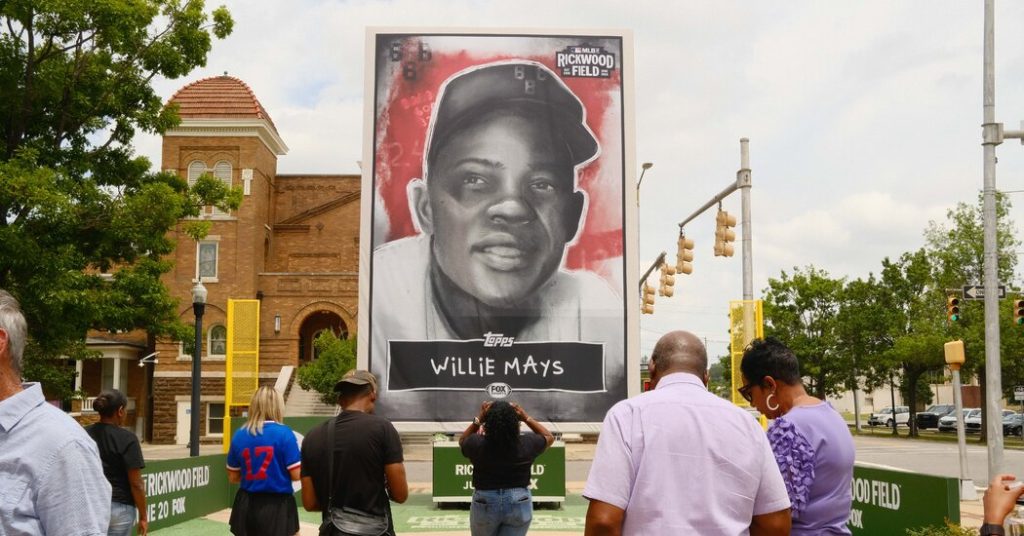Charles Willis, a 92-year-old man, still resides in his childhood home in Fairfield, a suburb of Birmingham. He reminisces about his days playing baseball, particularly with his childhood friend Mays, in high school. Willis played in center field while Mays was at shortstop. He recalls how baseball was considered the “Black man’s sport” back in the day, and how Black Barons games were significant events in the community. Willis even proudly showed off his baseball card, which described him as having “speed with a great arm.”
Reaf Blue, who played for the Black Barons and Atlanta Black Crackers in the late 1950s and early 1960s, also grew up in the neighborhood surrounding Rickwood. As a teenager, he worked at the ballpark as a groundskeeper and cleaner, eventually making his way up to play in center field. Blue recalls the racial segregation that was prevalent during his time working at Rickwood, where he had to divide the stands with a rope separating Black fans from white fans. This segregation was a painful reminder of the racial tensions that existed in Birmingham during that era.
Rickwood Field, the historic ballpark in Birmingham, holds significance beyond baseball. A plaque outside the main entrance commemorates a women’s suffrage rally that took place there in 1915. However, there is no mention of the Ku Klux Klan gathering that occurred at the ballpark in 1924 or the career of Bull Connor, who was once a radio announcer for the white Barons before becoming a notorious enforcer of segregation as the commissioner of public safety in Birmingham. These historical events serve as a reminder of the complex and tumultuous history of racial segregation in Birmingham.
Despite the challenges of racial segregation, the Black community in Birmingham found solace and joy in attending Black Barons games at Rickwood Field. People would eagerly gather to watch the games, often leaving church services early to ensure they didn’t miss out on the excitement. For many Black families, attending baseball games was a way to bond and find joy in the midst of adversity. The community spirit and camaraderie that were fostered at these games helped to uplift and unite the Black community in Birmingham.
Today, Rickwood Field stands as a monument to Birmingham’s rich baseball history, particularly within the Black community. The ballpark’s significance goes beyond sports, as it serves as a symbol of resilience and perseverance in the face of racial discrimination. Despite the challenges of the past, the memories of Black Barons games at Rickwood Field live on in the hearts of those who experienced them. The legacy of the Black community’s love for baseball and their unwavering support of the Black Barons continues to be celebrated and remembered in Birmingham.
As individuals like Charles Willis and Reaf Blue reflect on their experiences at Rickwood Field, they offer valuable insights into the powerful impact that baseball and sports have had on the Black community in Birmingham. Their stories serve as a testament to the resilience and strength of the Black community in the face of adversity, and highlight the importance of preserving and honoring the history of Black baseball in Birmingham. Through their memories and reflections, these individuals provide a glimpse into a shared past that continues to shape the identity and legacy of Birmingham’s Black community.


